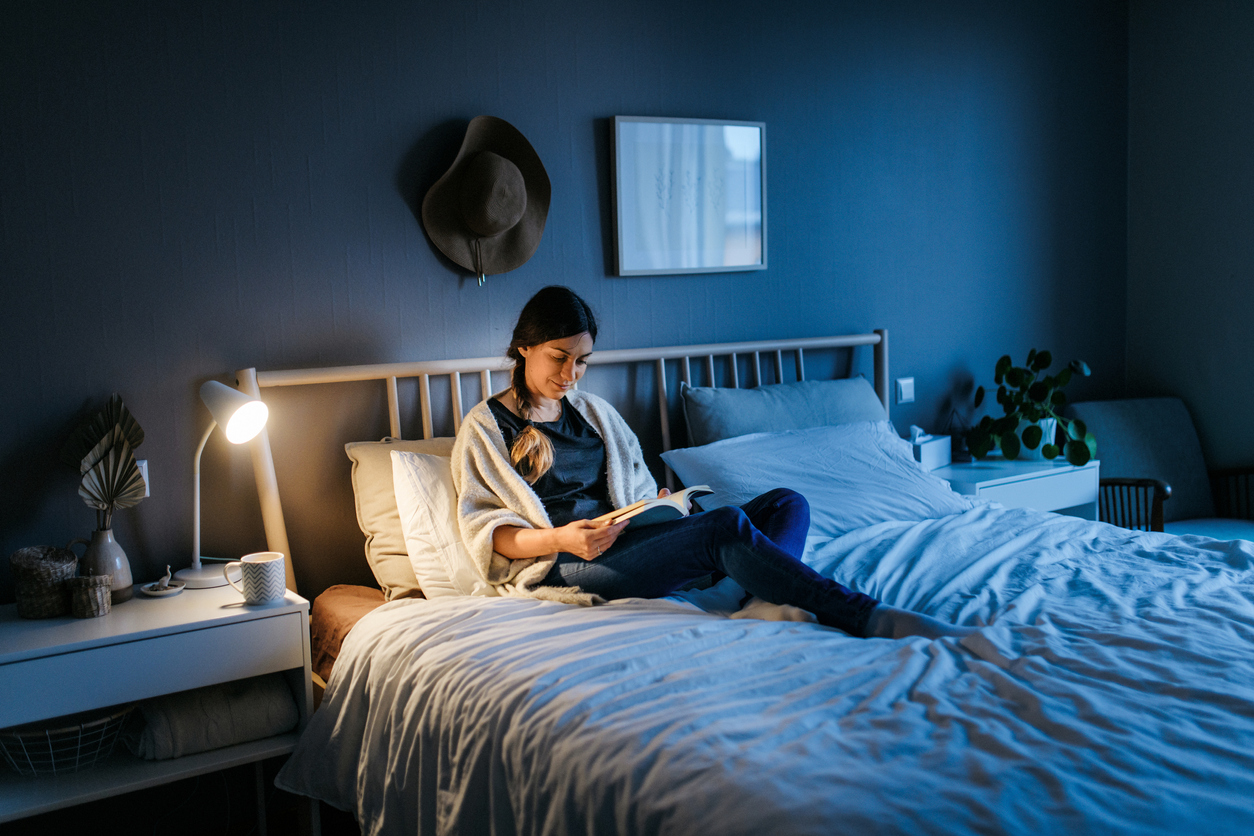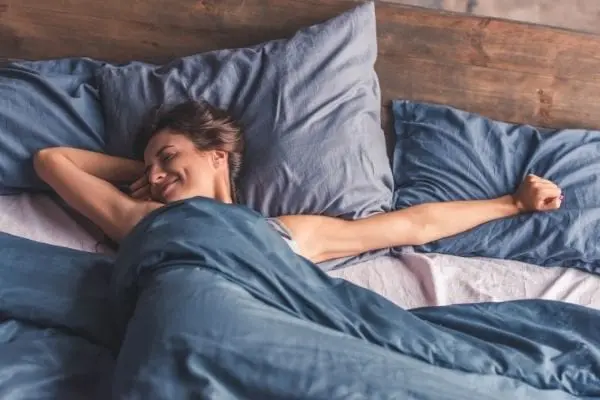Most of us struggle to sleep at night, tossing and turning all night long. However, there is a solution. Making small yet important changes to your bedtime habits and daily routine can have a significant impact on your quality of sleep. To help you do this, we’ve compiled a list of 12 night-time habits that’ll guarantee a sleepless night.
1. Keep a sleep schedule.
Stay on the same sleep schedule every day – go to bed and get up at the same time. Sleep-wake cycles help your brain process your daily activities more effectively. Making this a habit can boost your productivity and alertness during the day. For a better night’s sleep, being consistent with your sleep and waking times can also reset your body clock.
2. Swap your screen time for reading.
Netflix series or Instagram scrolling are not ways to relax your mind, despite what you may believe. Many electronic devices emit strong blue light, such as computers, televisions, smartphones, and tablets. By suppressing melatonin levels in your body, these radiations keep you awake.
Give your electronics a final farewell 30 minutes before bedtime and read a book instead. When you read a book before bedtime, you’ll be able to sleep better and cope with insomnia better.

3. Create a sleep-friendly bedroom.
Check the light and noise levels, the temperature, and your comfort level in your bedroom to transform it into a sleep oasis. Make sure all noisy electronics are turned off, the lights are dimmed, and the air conditioning is set to a lower temperature. Your room should be cleared of clutter and anything that can interfere with your sleep should be put away.
4. Relax by taking a bath or shower.
60 minutes before bedtime, take a nice hot bath or shower. This promotes better sleep and relaxes your muscles. Also, evening showers are considered to be good for your skin as they remove any dirt on your body before going to sleep.
5. Take some time to stretch to relieve tension.
You can improve your sleep routine with exercise, a science-backed method. Keep active before bedtime, but avoid doing so too close to it. Before going to bed, it is recommended that you finish any vigorous activity three to four hours before you go to doze off.

6. Take fewer or shorter naps during the day.
While napping can help you catch up on lost zzzs, it can disrupt your sleep cycle as well. If you’re taking a nap in the afternoon, try to limit it to 15 or 20 minutes.
7. Don’t drink caffeine after 6 p.m.
Adding caffeine to your diet can improve your focus, energy, and work performance. Caffeine, however, stimulates your nervous system when consumed late at night and may interrupt your natural sleep cycle.
Sleep time can be reduced by almost an hour when caffeine is consumed 6 hours before bedtime.
Try switching your daily caffeine intake with a soothing tea like chamomile or lavender at bedtime. Not only are these good for the body, but they have also been used to treat inflammation and anxiety related to naps.
8. Get an oil diffuser that works.
Having trouble falling asleep and staying asleep? Aromatherapy might be an option for you.
You can get a good night’s sleep by using an oil diffuser that emits aromatherapy vapors throughout the room. You can treat sleep apnea and relax your body with essential oils like lavender and eucalyptus.

9. Get a comfortable bed, mattress, and pillow.
Is there a reason hotels make us doze off better? Besides a relaxing environment, your bedding also affects your nap. Ideally, you should replace your mattress every five to eight years. One way to improve your sleep quality is to invest in satin pillowcases. With this fabric, you can improve the hydration of your skin and hair, prevent fine lines from forming, and reduce frizz.
10. Soothe your senses with music.
Listening to calming music is another effective way to induce quality rest. Let the music distract you from all your worries as you close your eyes. You can fall asleep faster when you listen to music because it has many therapeutic effects on your mind.







